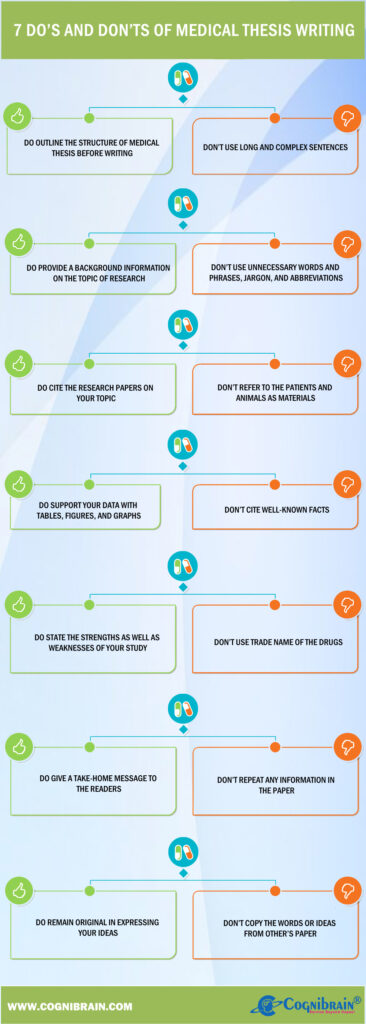Writing a medical thesis is necessary; not only to obtain your PhD degree but also to learn how to research, how to write, and finally, contribute to the scientific community with your research.
The PhD thesis is the single biggest piece of the work written by you. However, writing your thesis is not devoid of challenges. Academic pressure, people with different opinions and feedback, and the deadlines to publish make anyone feel overwhelmed.
But, cheer up! Here, we offer you some tips on how to handle the common challenges you face while writing your PhD thesis.
1) Avoid procrastination
Everyone procrastinates. Whether you’re watching your favourite show, checking out your to-do list or sitting idle, procrastination is an easy trap to fall into. However, this will add to the pressure of submitting your thesis on time. Moreover, the last minute preparation of your thesis might affect its quality.
So, start early and avoid procrastination.
2) Schedule your writing
Track your energy levels for a week and choose the best time for you to write. Choose the time when you feel most energetic and motivated to write. You don’t have to write pages at one time; it will exhaust you. A good thesis can’t be written with an exhausted mind. Schedule your writing, other things, and sleeping time.
3) Overcome your language barriers
Though English is the primary language of Science, it may not be your native language. In such a case, writing a PhD thesis is even more daunting. Look for the support available at your institution such as a writing centre or a training centre in academic writing, or you can search for a mentor.
If you’re still not confident, take help from the professional medical thesis writing services.
4) Get the right feedback at the right time
It’s good if you collaborate with your seniors or peers and take their suggestions to write your thesis. Their input can help you transform your work into something great. However, decide in advance on whom you want to get feedback from. Choose only those people who take a sincere interest in your work and are reliable.
Give them deadlines. This will save you from unnecessary feedback’s and you won’t worry about when you will hear from them.
5) Edit and proofread your writing
You have spent months reading and writing the same text. Now, editing and proofreading the same can be painful and tiring. However, you can’t undermine their importance in medical thesis writing.
So, give your thesis a break for a few days. After this break, you will be able to view your own writing from a fresh perspective and pick out many errors. Otherwise, you can also take help from the professional medical editing services.
Remember, you are not alone in facing these challenges in writing a PhD thesis. Everyone does. But, a strong willpower and these tips can help you write your thesis like a pro and come out with flying colours.




